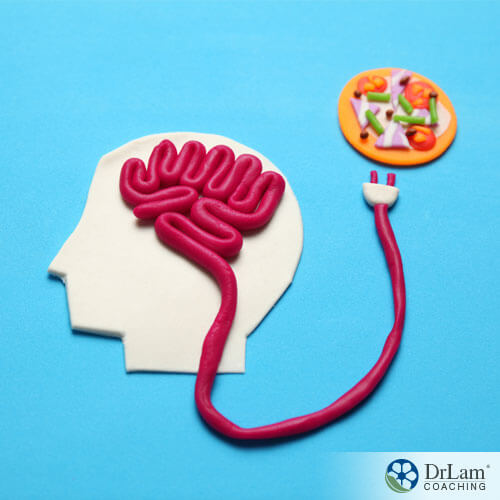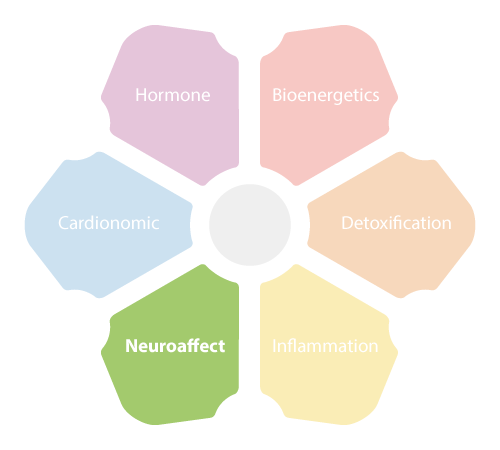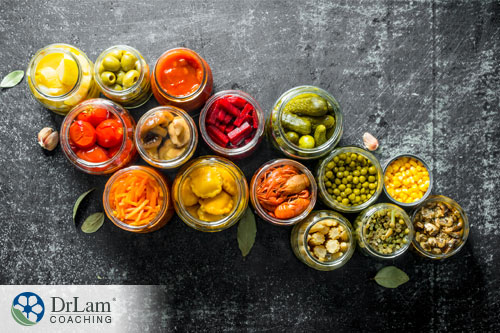The phrase “you are what you eat” is often used in various dietary articles. This phrase, coined from one in French translated as, “Tell me what you eat and I will tell you what you are,” first saw the light in a work by Frenchman Anthelme Brillat-Savarin in 1962. Research, however, strongly indicates that what you eat indeed plays a large role in your mental wellbeing, and food for mental health may be a prime example.
 Protein, vitamins, and minerals, as most people are aware, are of the utmost importance, not only our dietary needs, but to ensure physical health as well. What many people do not know, however, is that your diet also plays a very important role in your mental state.
Protein, vitamins, and minerals, as most people are aware, are of the utmost importance, not only our dietary needs, but to ensure physical health as well. What many people do not know, however, is that your diet also plays a very important role in your mental state.
Several foods can have a big impact on your mood. Fruits and vegetables, for example, contain a wide variety of micronutrients that are of great importance when it comes to your mental functions, with antioxidants and carotenoids playing an important role in fighting oxidative stress. Oxidative stress may be the cause of various neurological conditions, depression, inflammatory conditions, and atherosclerosis, to name but a few. Furthermore, certain vitamins, including vitamin C and the B vitamins, as well as certain minerals, play an important role in both cognitive and emotional functionality.
Various studies on mental health and fruit and vegetable consumption strongly indicate that people who eat more of these foods tend to have a lower risk of developing mental health issues. They also tend to show a lower rate of mood issues, stress, and depression. In addition to this, studies indicate that these people have a greater chance of happiness, a more positive mood, positive mental state, more life satisfaction, and report a greater overall fulfillment in life.
What is interesting to note is that your mood may also influence your food choices, according to a study. People who are feeling down or depressed tend to prefer “comfort food.” These foods are usually high in fats, carbohydrates, and sugars. These foods also tend to trigger feel-good endorphins in the brain. Similarly, when mental health is at an optimum, people tend to opt for food for mental health, that is, healthier food choices.
While fruits and vegetables may be classified as food for mental health, how these foods are prepared is also important. For example, raw, cooked, or canned foods all have different nutrient content, which can alter their influence on your body’s neurotransmission systems.
Certain water-soluble nutrients like vitamin C and the B vitamins may undergo degradation when exposed to heat, thereby reducing the amount of micronutrients your body gets. On the other hand, fat-soluble nutrients like vitamins A, D, E, and K are not as susceptible to heat damage, which means their nutritional quality is not compromised as easily. Cooking may also reduce the oxidative abilities of certain foods, while it may enhance that of others.
With regards to canned foods, long storage times may result in a loss of nutritional bioavailability. Chemicals from the tin, such as BPA, may also seep into the food after a while.
When it comes to freezing food for mental health, results show that this preserves more nutrients, although the thawing and subsequent cooking process may reduce the overall nutrient value.
A number of studies show that raw foods may have a much more positive impact than cooked or canned food.
One study on food and mental health specifically targeted six aspects of mental health with 422 participants between the ages of 18 and 25 years and used online surveys to figure in various factors, such as lifestyle, behavior, demographics, and state of mind at the inception of the study. The results showed that there was a close correlation between mental health and the way in which foods had been prepared. Where raw fruit and vegetables were predominantly consumed, participants showed much more robust mental health than their counterparts whose diets had focused on cooked or processed foods and vegetables. The top foods for mental health included citrus fruits, kiwifruit, berries, dark leafy green vegetables, carrots, apples, and bananas.
Symptoms such as anxiety, depression, sleeplessness, feelings of impending doom, and neurodegeneration may be the result of a dysfunctional Neuroaffect circuit. In many cases, these symptoms can be addressed by means of diet, lifestyle changes, and a health improvement plan. Often, stress, combined with incorrect eating habits, is the main culprit that causes these seemingly unrelated symptoms.
 Your body has a built-in mechanism, the NeuroEndoMetabolic (NEM) Stress Response, that is specifically designed to gear up and handle stressful situations. Although this automatic response, which results in the increase of stress hormones, affects various body systems, it’s mental health impacts are especially evident through the Neuroaffect Circuit. This circuit consists of your brain, autonomic nervous system, and microbiome, and it plays an important role in the biological aspects of many mental health concerns.
Your body has a built-in mechanism, the NeuroEndoMetabolic (NEM) Stress Response, that is specifically designed to gear up and handle stressful situations. Although this automatic response, which results in the increase of stress hormones, affects various body systems, it’s mental health impacts are especially evident through the Neuroaffect Circuit. This circuit consists of your brain, autonomic nervous system, and microbiome, and it plays an important role in the biological aspects of many mental health concerns.
Your autonomic nervous system controls a number of its own systems without any conscious thought. For example, when under stress, your body goes into fight or flight mode, with your body gearing up to handle the situation. This response is triggered by the autonomic nervous system, which releases norepinephrine, the neurotransmitter most often used during times of mild stress. If stress increases, however, the adrenomedullary hormonal system is activated and epinephrine, a stronger neurotransmitter, is released. Once this period of stress passes, the parasympathetic nervous system is activated. Its job is to allow the body to rest and recuperate from the effects of the stressful situation.
Times of continuous stress results in a continuous release of epinephrine, which results in increased pressure being put on the adrenal glands to produce cortisol. In the long term, your adrenals may eventually become exhausted and unable to produce sufficient quantities of cortisol. Ultimately, you may find your body going through the different stages of adrenal fatigue, with the latter stages seeing a shortage of cortisol and potentially debilitating effects on your health.
Brain health is also compromised during times of stress. Here, various neurotransmitters come into play in order to keep your body working at an optimal level. Amongst these are serotonin and its precursor 5-HTP. Another is GABA, an inhibitory neurotransmitter that allows your body to slow down and recover, while melatonin, which is also present in the brain, is connected to sleep function. Serotonin, melatonin, GABA, 5-HTP, and cortisol, in conjunction with each other, manage your ability to handle stress as well as your different biological rhythms.
An imbalance in these and other neurotransmitters in the brain could result in many varied health issues. Eating food for mental health is thus of great importance in order to ensure that your body has the nutrition it needs to produce these and other neurotransmitters at the appropriate time.
Your microbiome is also of great importance, however, as it is uniquely connected to the brain. Dysbiosis in the gut, an imbalance in your healthy gut bacteria, has a huge impact on your mental health. Your gut is where the majority of your neurotransmitters are produced. Gut dysbiosis has been linked to numerous disorders, including anxiety, depression, autism, sleep disorders, inflammatory bowel disease, type-2 diabetes, and atherosclerosis.
According to research, the vitamins and other compounds found in our food sources influence neurotransmitter synthesis in the brain, DNA repair, glucose metabolism, mitochondrial function, lipid metabolism, and many others. In this way, eating food for mental health allows you to support your gut and brain before any of these possible stress and diet-related issues appear.
 While incorporating large amounts of raw fruits and vegetables in your diet may help ensure you cover your body’s food for mental health needs, their availability may sometimes be limited. In such cases, do consider eating more frozen, dried, and canned fruits and vegetables. While the latter may not be as nutrient-rich as their raw counterparts, they still have a good dose of the vitamins and minerals needed to optimize brain and gut function. Focusing on eating more fruits and vegetables overall will give your body a measure of the protection it needs in order for you to stay healthy, both physically and mentally.
While incorporating large amounts of raw fruits and vegetables in your diet may help ensure you cover your body’s food for mental health needs, their availability may sometimes be limited. In such cases, do consider eating more frozen, dried, and canned fruits and vegetables. While the latter may not be as nutrient-rich as their raw counterparts, they still have a good dose of the vitamins and minerals needed to optimize brain and gut function. Focusing on eating more fruits and vegetables overall will give your body a measure of the protection it needs in order for you to stay healthy, both physically and mentally.
© Copyright 2020 Michael Lam, M.D. All Rights Reserved.
Food for mental health are in most cases the same types of food that support the nutrients your adrenals need to function at their best. Eating more of these foods not only supports brain function but supplies adrenal support as well. Raw food, if possible, is usually best.
